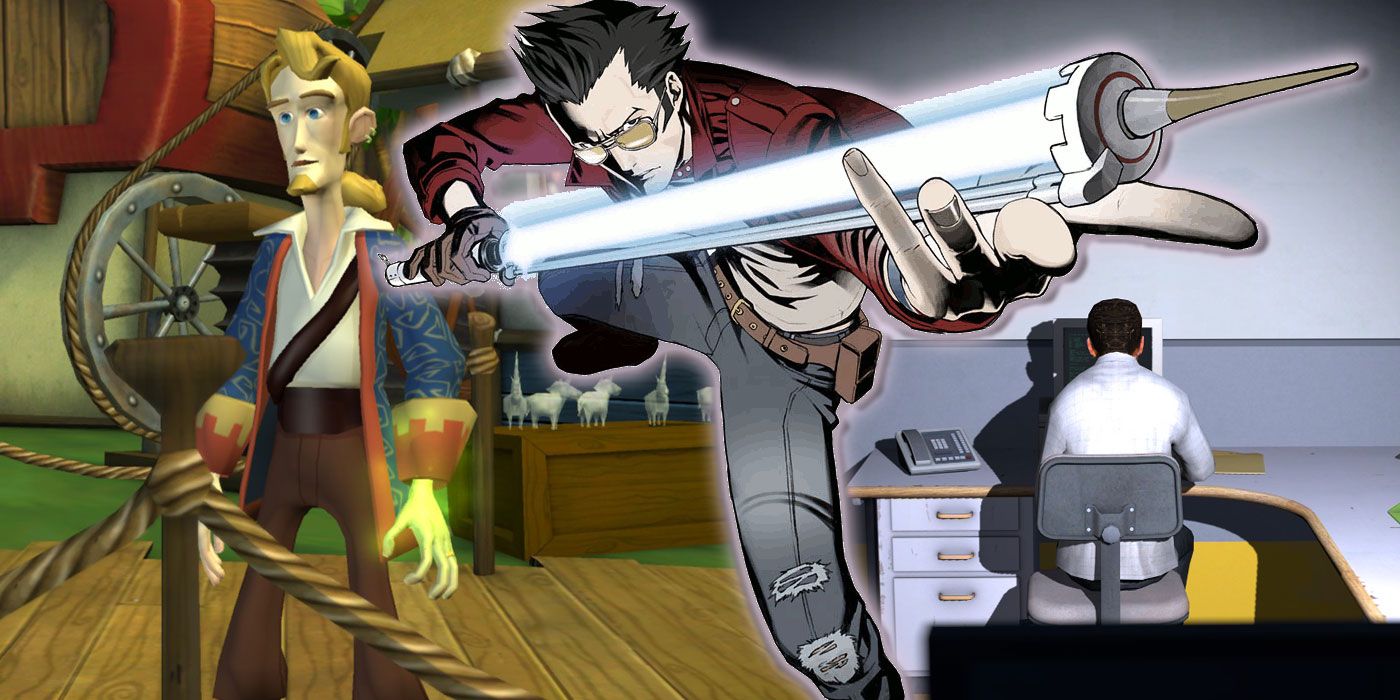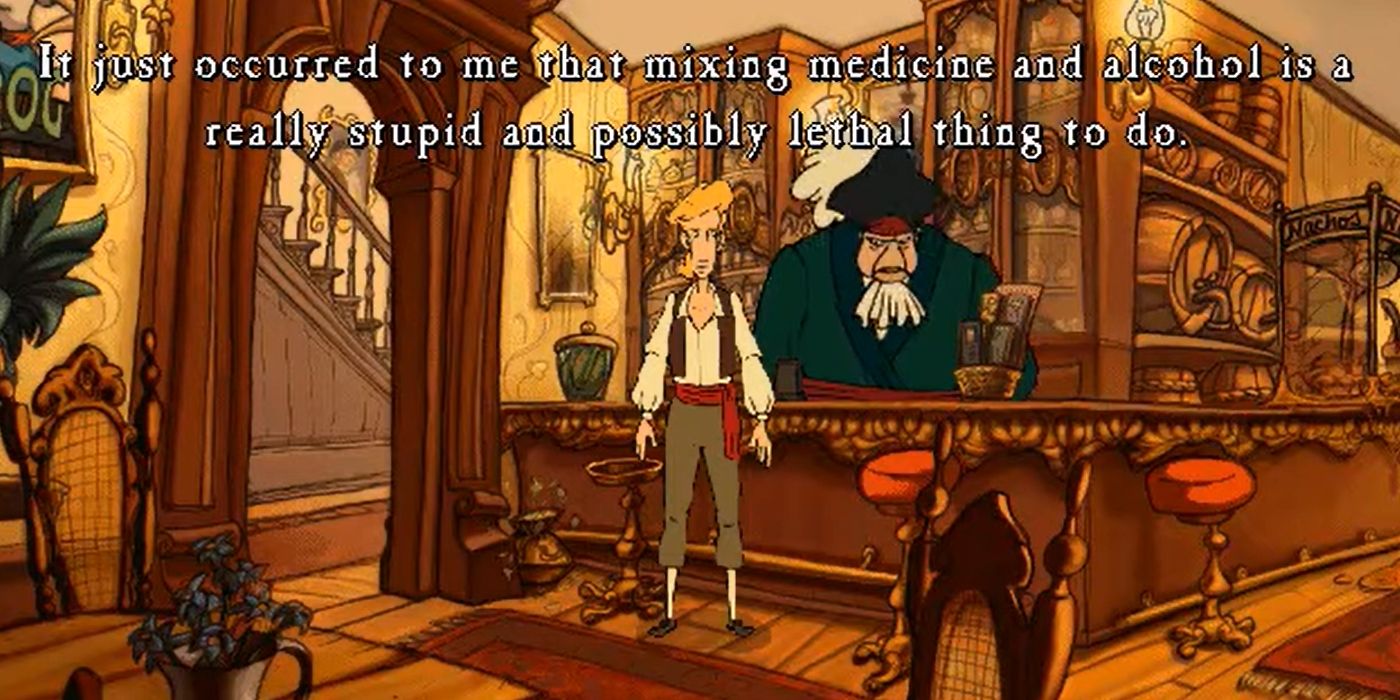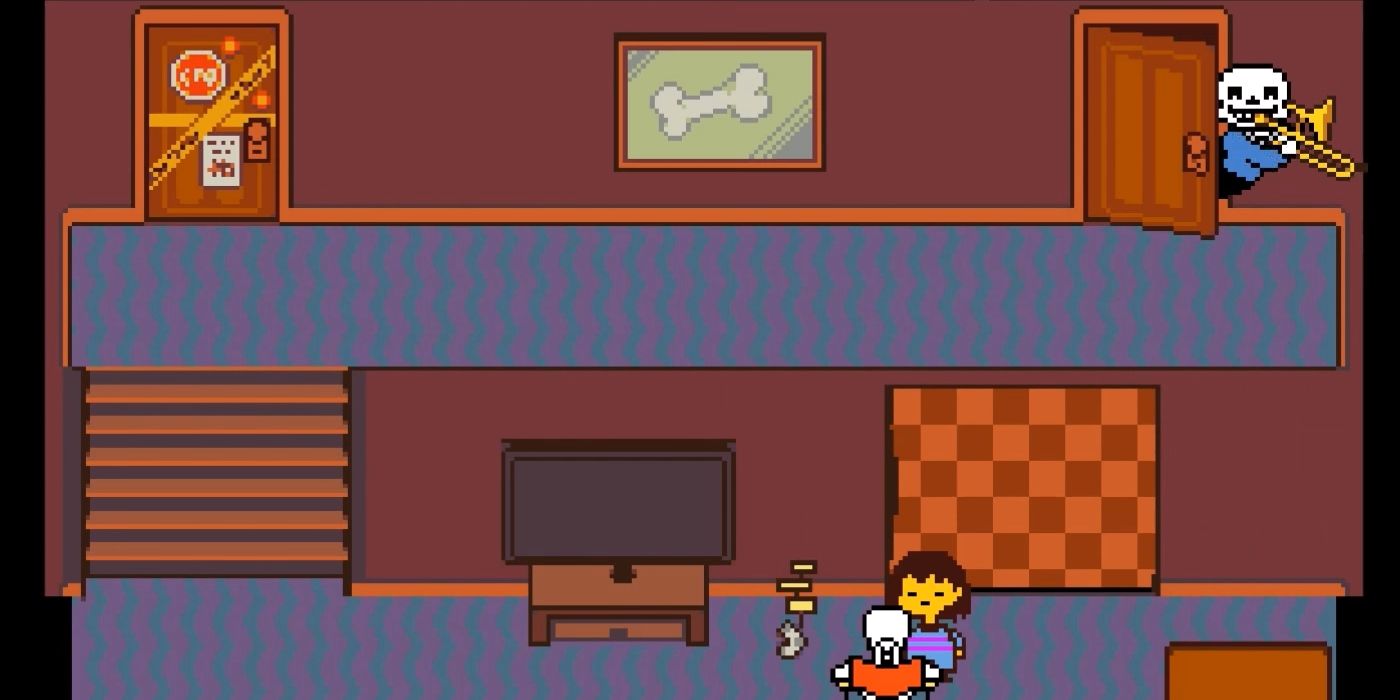Comedy is one of the most important genres in any medium. Though its specifics take different forms from culture-to-culture, it is at its core a way of helping people laugh at life's absurdities by finding humor in everyday conventions or ridiculing tropes that audiences have gotten used to. With so many different video games having emerged in just a few short decades, comedy titles have a surprising amount to work with.
Yet, despite the abundance of potentially great material, comedy games just aren't that common anymore. The '90s were a golden age for the genre, thanks to adventure games like The Secret of Monkey Island and The Hitchhiker's Guide to the Galaxy, but there were plenty of other contenders. Rare's mascot platformers were all steeped in satire to varying degrees, and even RPGs like Final Fantasy dipped their toes in the comedic waters with more light-hearted games like V and IX. Such titles, however, are rare in modern gaming and increasingly notable by their absence.
None of this is to say that modern games can't be funny. No More Heroes has plenty of wacky baddies and cartoonish moments, and the Tales games have no shortage of skits that show off their heroes' goofier aspects. However, it's hard to call any of them "comedies" just because they're occasionally self-aware about the tropes they use. Their jokes are an enjoyable extra, not their raison d'être. By contrast, it's hard to talk about the likes of Conker's Bad Fur Day without discussing its various parodies and iconoclastic gags.
Part of the problem might be that comedy is incredibly subjective. As well as each person having their own distinct sense of humor, jokes often struggle to cross-cultural boundaries. Every region has its own acceptable and unacceptable targets, which may require rewrites to avoid offending audiences, and the effectiveness of puns and wordplay is often restricted by language. That said, sharing a mother tongue is no guarantee that a joke will transfer perfectly. The UK and US both speak English, yet their archetypal comic heroes are as different as night and day.
When one considers this in combination with the rising costs of game development, it makes sense why many studios might be skeptical about such games. Backing that fear up is the unfortunate reality that these titles don't always succeed. Psychonauts is a cult classic for its abundance of clever dialogue, but it's also infamous for being a commercial failure. While the likes of Saint's Row, arguably a whole franchise of dark comedies, do indeed exist, they're the exception that proves the rule.
It's little wonder then that comedy games are more frequently found in the independent scene. Undertale, of course, stands out for its cartoonish characters, the hilarious dates one can embark upon with them and its constant subverting of RPG mechanics, but it is by no means alone. The Stanley Parable uses the conventions of walking simulators to great effect, mocking and playing with the tropes in its genre and choice-driven narratives as a whole. However, for all their smart mechanics, what truly sells their humor is their sharp writing.
Being smaller projects, indie games aren't as beholden to their larger counterparts' executive mandates and focus-testing. This makes it easier for them to stick to a singular vision and better communicate their creator's message. Such messages are often critical components of good comedies, as, while they can easily be humor for its own sake, the truly great works often speak to some deeper truth and use their jokes to address its problems. By contrast, simple parodies and references come easier to AAA titles than genuinely biting satire.
Yet, with all the advancements games have made in the last few decades, perhaps it's time for comedy once again to become one of the medium's biggest players. While the point-and-click adventures of old had to rely on sharp scripts to supplement their simple gameplay, we now live in an age where one can have great writing and engaging mechanics. After so many years of developing tropes, controls and systems, it's shocking that big studios haven't found more to laugh about. Here's hoping they'll see the funny side in the future.



